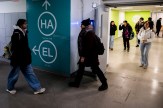Summer Youth Employment Program connects high school students with jobs, academic advancement
Nearly 200 Boston teens and young adults gathered at Northeastern University on Tuesday to kick off another year of the Boston Summer Youth Employment Program.
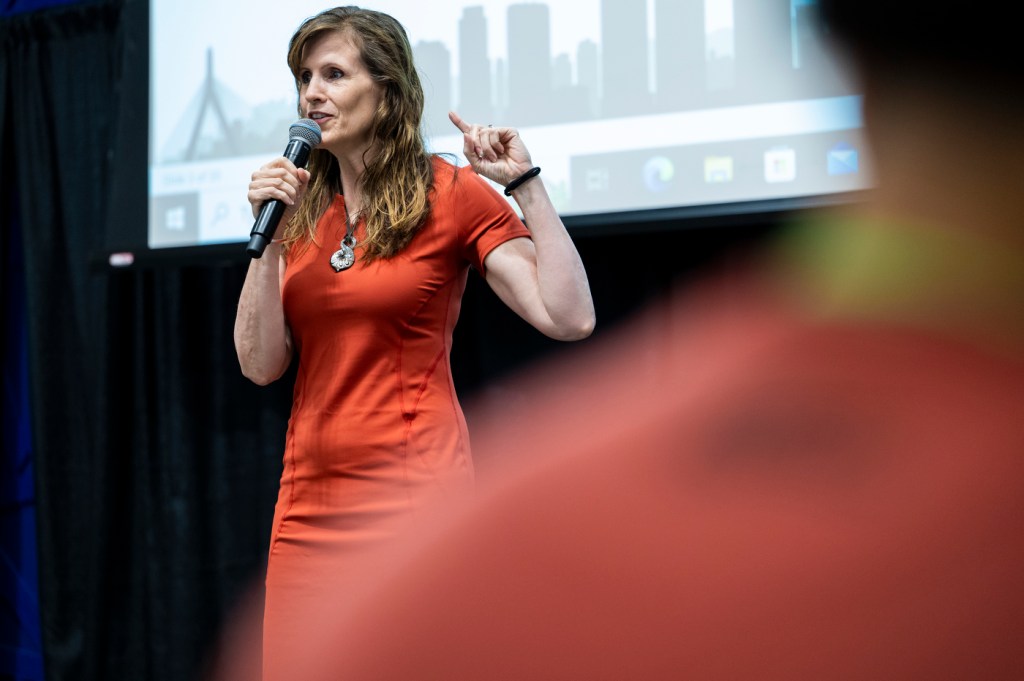
It’s the classic chicken-or-the-egg scenario: how do you get employment experience without a job, and how do you get a job without employment experience?
“You get it through the Summer Youth Employment Program,” Alicia Modestino, an associate professor of economics in Northeastern’s School of Public Policy and Urban Affairs, said in welcoming the program participants to the university’s Boston campus on Tuesday.
“It helps you get this experience,” said Modestino, also research director for the Dukakis Center for Urban and Regional Policy. “And it also reduces inequality of opportunity across different groups of youth to make sure that these kinds of employment experiences are open to everybody.”
Since 2015, Northeastern’s Community to Community Impact Engine has partnered with the city of Boston to evaluate the city’s Summer Youth Employment Program. Modestino heads up the research.
On Tuesday, 175 Boston teens and young adults gathered at Northeastern to kick off another year of the program, which will connect roughly 10,000 city students this year with hundreds of local employers, including Northeastern.
The university offers program participants internships with various university departments or the opportunity to get paid to take Bridge to Calculus, a course to prepare them for advanced math courses.
A summer jobs program is also offered on Northeastern’s campus in Oakland, California.
“The program that you’re entering into for the summer has huge impacts on young people,” Modestino told the students.
Modestino noted that the summer jobs program has been shown to increase employment and wages, increase academic achievement, teach soft skills crucial to the job market — from writing a resume, to showing up for work on time, to developing references and mentors — and also been shown to decrease youth involvement with the criminal justice system.
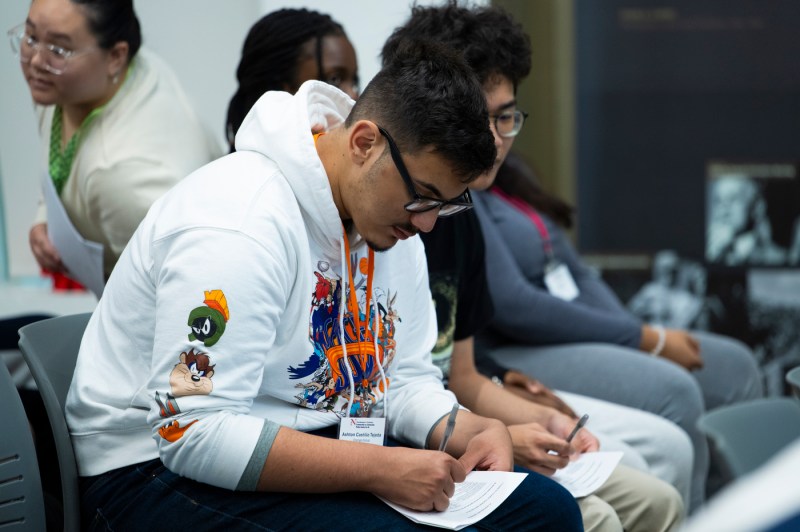
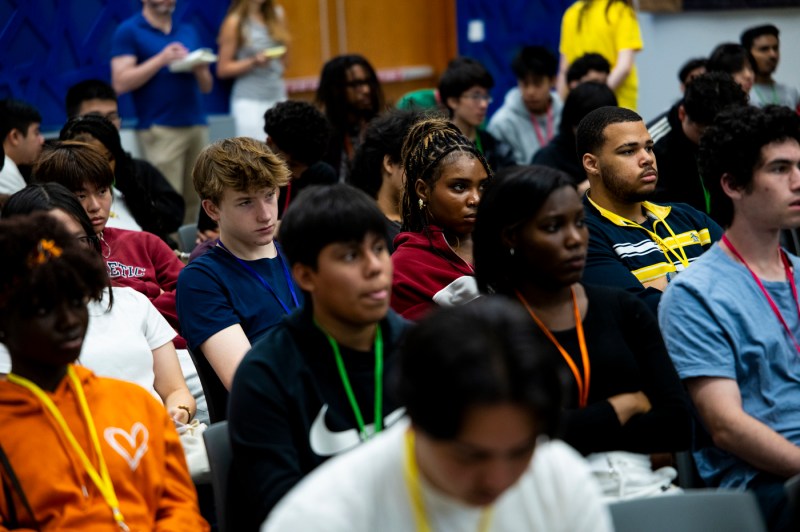
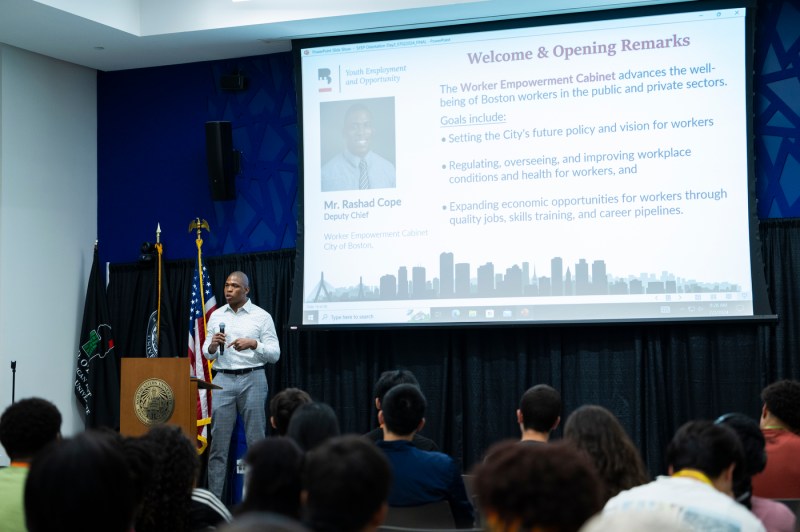
That benefits not just employees and employers, it benefits the city.
“Thank you to each of you for seizing this opportunity,” Rashad Cope, deputy chief of the city’s Worker Empowerment Cabinet, told the youth on Tuesday. “Your willingness to step into these roles and to be here today is truly, truly commendable, and we hope that this experience will lead to continued learning in whatever areas you are aspiring to learn and continued growth in whatever areas you all are looking to grow.”
“Each one of you all collectively make up our future workforce,” Cope continued. “We believe wholeheartedly your potential to make a significant impact here in the city of Boston and wherever your talents lead you.”
Youth participants said they’re excited to begin.
“I want a better looking resume and experience in the workplace,” said Lucy Schneller, 14, a student at Josiah Quincy Upper School who will be working in social media with Northeastern’s office of Off-Campus Student Engagement and Support.
Max Hannon, 15, a rising sophomore at the John D. O’Bryant School of Math and Science, is enrolled in the Bridge to Calculus Program as his first-ever summer job.
Hannon said the program appealed to him because it offered the chance to advance his math and help him in the future — all while he is able to earn real wages for the first time in his life.
Ruby Roner, 14, and a rising sophomore at The Newman School, concurred.
“It’ll be a good experience to learn how to work in a more professional environment and develop skills that are helpful in real life,” she said.
Yanciely Moreta, 17, a rising senior at Boston Community Leadership Academy/McCormack, is using the Bridge to Calculus Program to further develop her mathematics skills.
Last year, Moreta took Advanced Placement precalculus, and her math teacher recommended Bridge to Calculus. Moreta said she pursued the opportunity because she wanted to continue to learn; now she is excited to practice her math skills and get ready for her senior year when she will be taking AP Calculus.
Modestino said that the program demonstrates Northeastern’s commitment to experiential learning and its mission to “bring the outside in” through co-ops and other learning experiences.
“For us to be able to host all of you, and to be able to help you think about what your journey is going to be like as you think about careers, as you think about going to college, as you think about entering the workforce — that is exactly what we do as an experiential university,” Modestino said. “We are so excited and thrilled to host you right now, this summer.”
Samantha Fortier of Northeastern Global News contributed to this story.

